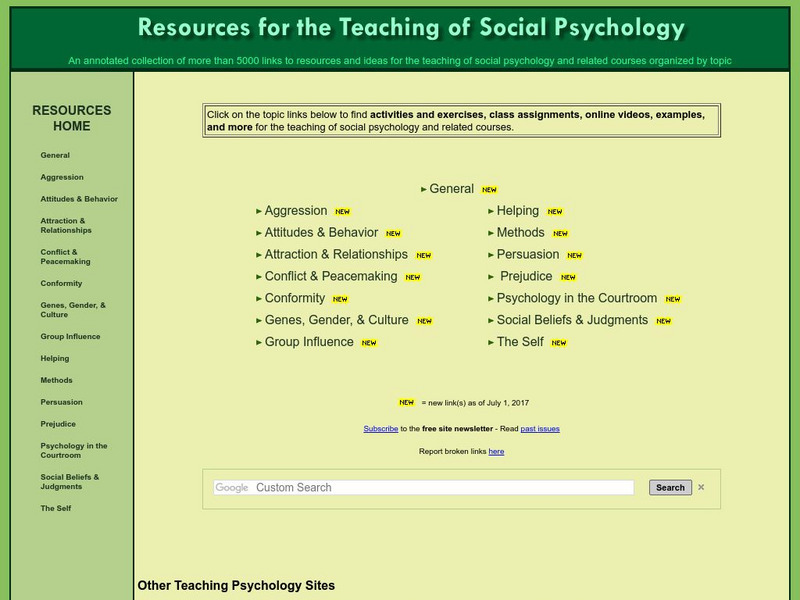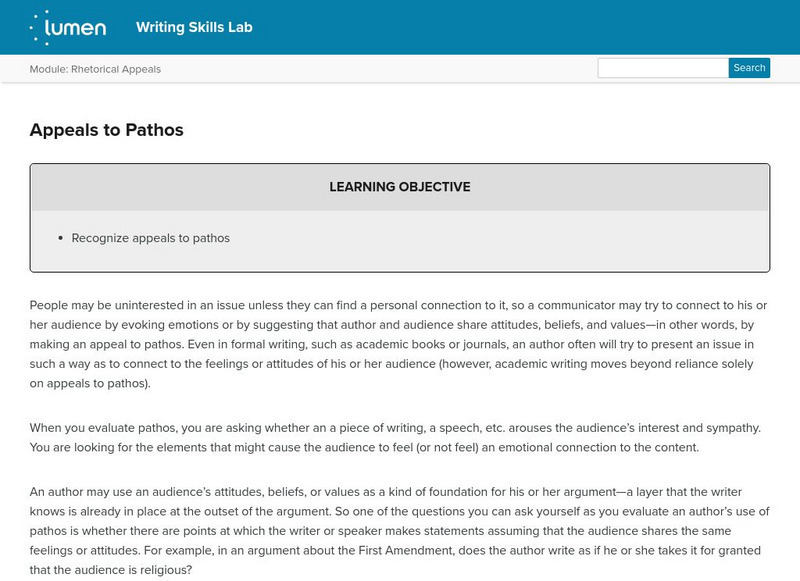Hi, what do you want to do?
Curated OER
Owning Your Own Business
Fifth graders consider the type of business they might like to own. They design an advertisement for this business. They prepare questions that they could ask each other, as owners of various businesses. Guest speakers could be utilized.
Curated OER
Civil War in Lebanon
Pupils explain how civil war impacts the common person. They analyze the effects of conflict on identity. They synthesize the impact of the civil war on the common person. They view a PowerPoint on Lebanese Conflict.
Curated OER
Who Works Here?
Fourth graders list all of the workers in their school. They interview them to find out more about each occupation.
National Endowment for the Humanities
Neh: Edsit Ement: Women's Equality: Changing Attitudes and Beliefs
For this lesson plan, students will consider "Women's Equality: Changing Attitudes and Beliefs." The plan includes worksheets and other student materials that can be found under the resource tab.
Other
University of Ulster: Northern Ireland Life and Times Survey
This program examines the social attitudes of people living in Northern Ireland. The survey collects data on the attitudes and beliefs of the population along with any social policy issues.
Khan Academy
Khan Academy: Challenging Beliefs to Prevent Eating Disorders
This study resource from Khan Academy provides assessment practice for the MCAT's social sciences passages section. This practice resource includes the article "Challenging Beliefs to Prevent Eating Disorders" with practice questions....
Khan Academy
Khan Academy: Do Beliefs About Healthy Food Inform Consumer Choices?
Questions related to attitudes.
PBS
Pbs Learning Media: Point of View: My Love, Don't Cross That River: Lesson Plan: Facing Aging, Loss and Grief
Jin Mo-young's film My Love, Don't Cross that River documents the final years of a South Korean couple, 89-year-old Kang Gye-Yeol and 98-year-old Jo Byeong-Man, who have been married for 76 years. The film, which follows the couple over...
Harvard University
Harvard University: Project Implicit
This interactive test allows you to explore your unconscious preferences and beliefs through a series of questions. The site also contains related material on examining your unconscious. Your browser must support Java Applets.
The Dirksen Congressional Center
Congress for Kids: Citizenship: Attitudes/actions of Responsible Citizenship
Understanding how your values and attitudes influence your views as a citizen can be difficult. This activity will help you become aware of your actions, attitudes, beliefs, and values maybe for the first time. So be prepared to...
PBS
Pbs Teachers: Sound and Fury: Deaf and Diverse
Identify beliefs, values and attitudes of deaf culture. Explore the causes and special communication needs of deafness, research the role that American Sign Language plays in forging a sense of community and create your own "sign name".
Lumen Learning
Lumen: Boundless Communications: Contextual Factors to Consider
This lesson focuses on contextual factors to consider when analyzing your audience including physical contexts, values, beliefs, attitudes, and needs, audience opinion of you and your topic, and audience knowledge of your topic.
Other
Crow: Resources for the Teaching of Social Psychology
This page provides links to several subcategories of social cognition such as prejudice, persuasion, attitudes, and altruism. Once you click on the topic you have a variety of sources to choose from for more information.
Other
Personal Site: Inter Religious Attitude
A long essay from this personal site detailing Hinduism's tolerance of other religions and downplaying Hindu-Muslim tension in present-day India. Claims that Hindu India has always been a sanctuary for oppressed members of other...
Other
Theory Into Practice: Cognitive Dissonance
This site from the Theory Into Practice website provides a simple and straitforward explaination of the Cognitive Dissonance theory. The page gives a good example of the theory in action and references for further information.
Lumen Learning
Lumen: Rhetorical Appeals: Appeals to Pathos
This instructional activity focuses on appeals to pathos; to connect to the audience by evoking emotions or by suggesting that author and audience share attitudes, beliefs, and values.


















